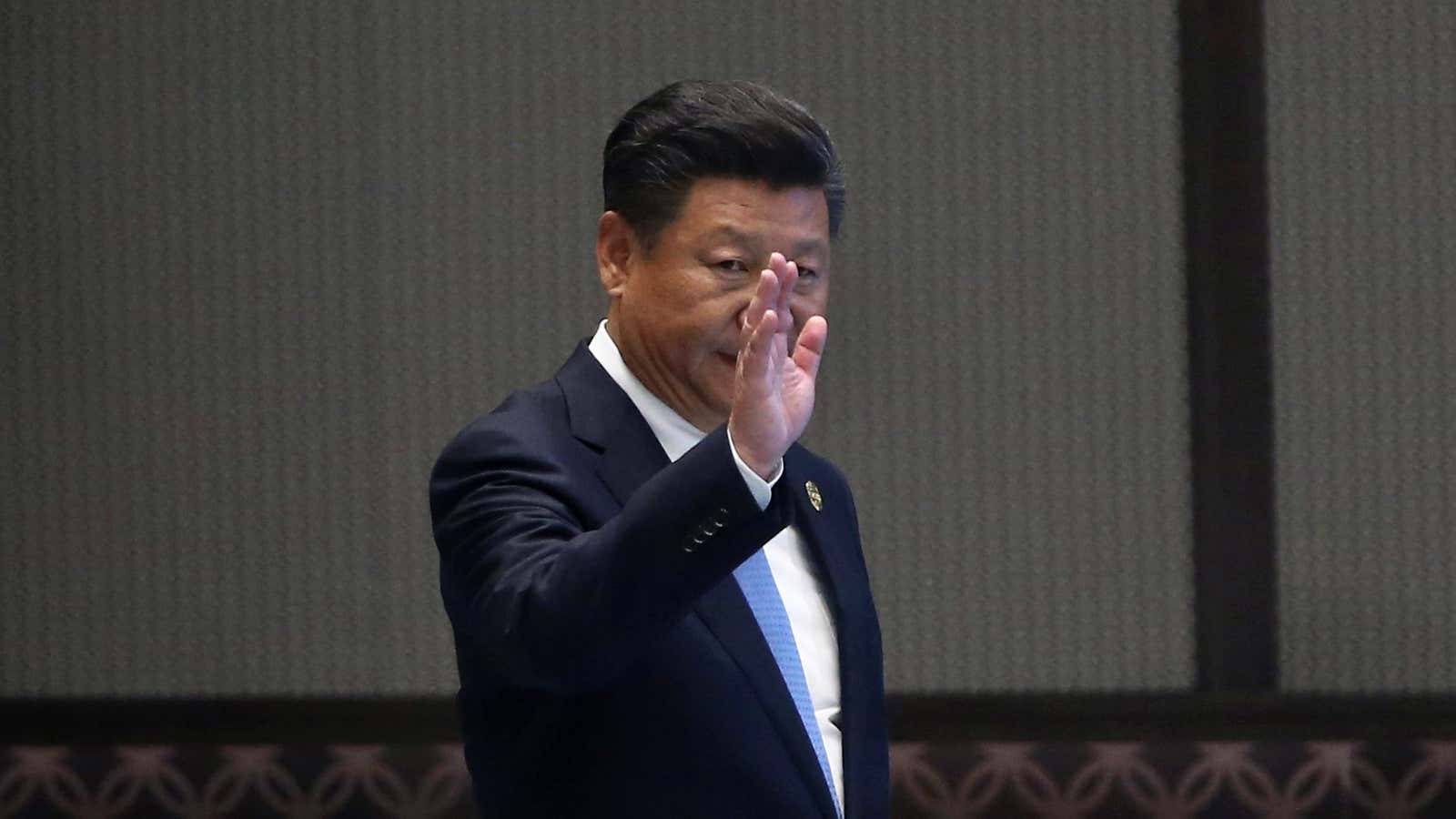Chinese president Xi Jinping has vowed for the first time that China should take the lead in shaping the “new world order” and safeguarding international security, one of the latest moves putting him in stark contrast to Donald Trump and the US president’s “America First” policy.
Xi had on numerous occasions called for China to play an important part in building the new world order. But during a Feb. 17 national security seminar in Beijing, he indicated China should “guide” the international community in the effort. A Feb. 20 commentary (link in Chinese) by the Chinese Communist Party’s central party school, which trains officials, noted the distinction. It has since been widely shared by state-controlled media.
News outlets dubbed Xi’s new approach the “Two Guides” (两个引导) policy, with the “two” referring to the new world order and international security. (China has an obsession with silly-sounding numbered policies.)
“The overall trend of world multi-polarization, economic globalization, and democratization of international relations remains unchanged. We should guide the international community to jointly build a more just and reasonable new world order,” Xi was paraphrased by Xinhua (link in Chinese) as saying during last week’s seminar. In another paragraph, the state newswire paraphrased Xi as saying “We should guide the international community to jointly maintain international security.”
Xi’s new proposal has “profound meaning,” as his speech coincided with the annual Munich Security Conference and the G20 finance ministerial meeting, noted the commentary. It added that the Western-dominated world order is near its end as Western countries are showing less willingness and ability to interfere in global affairs—as evidenced by Trump’s isolationist foreign policy.
Xi attended the seminar as head of the National Security Commission, a secretive party organ set up in 2014. Until last week, the body had held just one publicly reported meeting since its establishment. The latest seminar came ahead of the party’s 19th congress, a major leadership reshuffle event slated for this fall.
Since Trump’s election China has emerged as the world’s strongest proponent of globalization. In the past few months, Xi has been busy sending the world messages that are the exact opposite of Trump’s.
As Trump promised to tear up the Trans-Pacific Partnership, Xi touted his alternative Regional Comprehensive Economic Partnership, including at last November’s APEC summit, right in the US’s backyard.
As Trump threatened to close the borders and back away from global affairs, Xi rebuked Trump—without mentioning his name—in his keynote speech at the 2017 World Economic Forum in January. As Trump pressed to curb immigration, Xi called to make it easier for foreigners to get Chinese green cards.
Xi and Trump appear aligned on one issue: the press. As Trump denounced the media as the “enemy of the American people,” China’s state-controlled media marked the first anniversary (link in Chinese) of Xi’s talk demanding “absolute loyalty” from the press—an idea that Trump, it would seem, could get behind.
